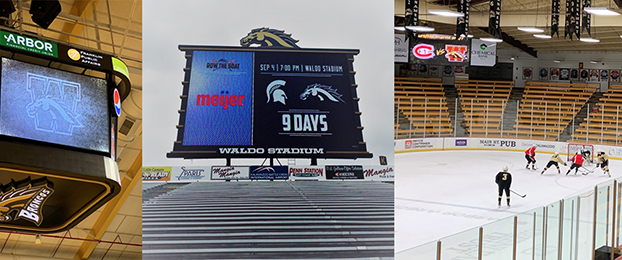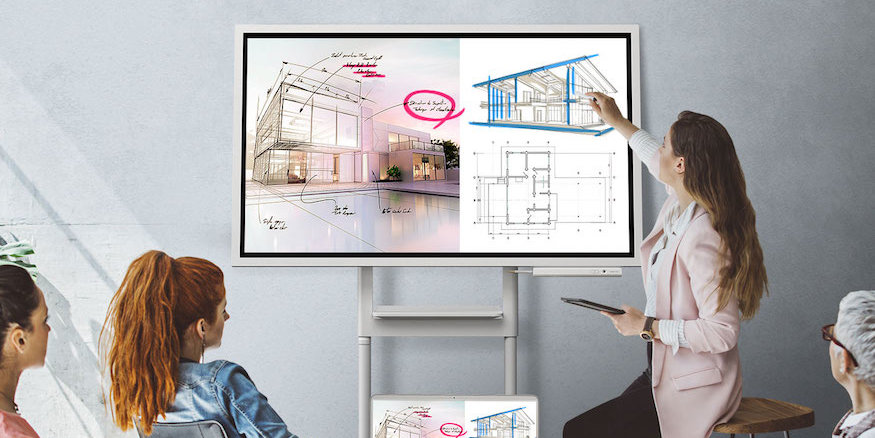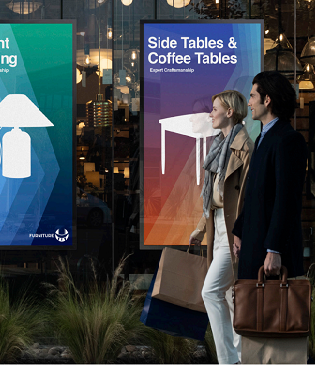At the turn of the 20th century, Western Michigan University looked a little different. With just over 100 students enrolled, Western State Normal School (as it was then called) awarded teaching certificates on a small, single-building campus. These days, things at WMU have changed. Between five campuses and around 150 buildings, the university is constantly looking for ways to improve student experiences.
In 2013, their quest for advancement led Western Michigan University to Samsung, seeking ways to upgrade their sports facilities. The resulting projects proved to be game-changing.
Multiple facilities, one central hub
Upgrades across campus began with hockey. The Lawson Ice Arena scored a new end zone display, measuring 37.3 feet by 30 feet with a 10mm pixel pitch. The hockey arena also scored a new center-hung score scoreboard. From there, WMU turned their attention to the football stadium.
Waldo Stadium was slated to get $500,000 worth of production equipment, in addition to new displays. Early on in the process, however, concerns were raised about isolating the expensive new broadcast equipment to the football stadium, where it would sit unused for a large portion of the year. That’s where Samsung stepped in with a creative solution: the trailer.
“Honestly, we didn’t know what we were getting into,” says Matt Kulik, director of athletic facilities at Western Michigan University. In the end, the leap of faith paid off.
By investing an additional $30,000 upfront, WMU was able to place that fancy production equipment in a broadcast trailer — meaning other sports teams and facilities could take advantage of its benefits down the road. And take advantage they did. In the following years, multiple facilities received new display technology and were revamped to work with the trailer.
Waldo Stadium still received its planned upgrades, scoring a giant new 16mm video board clocking in at 62.6 feet by 40 feet, a new 12mm auxiliary display measuring 54.6 feet by 29 feet and an upgraded audio system.
Read Fieldhouse, home of the basketball and volleyball teams, saw the largest array of upgrades. The arena received a new 8mm center-hung display measuring 34.6 feet by 24 feet, a 12mm center-hung ring spanning 117 feet by 4 feet and new 16mm fascia boards stretching 76 feet by 4 feet. Courtside tables with 6mm displays measuring 40 feet by 9 feet also made the cut.
How to plan and deploy LED digital signage
Discover the unique advantages of direct-view LED technology over traditional LCD displays. Download Now
“We’ve had a great working relationship with [Samsung] over the past few years. No project was too big or small and they’re always willing to help whenever needed,” says Kulik. In total, WMU received five new indoor installations and two outdoor installations with a total of 12 new screens. But the crown jewel of the process most certainly is the trailer.
Production on wheels
The first of its kind for a university, this mobile production unit houses all equipment needed to produce and broadcast games and events. By mobilizing major equipment, WMU can transport it to each arena and broadcast games while minimizing expenses and operating costs.
The university no longer needs to rent these trailers from ESPN, and because they own the truck, they’re able to produce and air more events. “They designed a great concept,” says Kulik. “Our broadcast trailer produces 45 games each year broadcast on ESPN’s website.” It’s a nice added bonus, because the school turns a profit on each game aired by ESPN.
While major equipment lives in the trailer, smaller operating rooms were built in each facility during upgrades — so one location may utilize the truck to air a game, and other locations can produce high-tech shows in-house at simultaneous events. Hype videos, player profiles and replays are managed from these operating rooms, and standardized systems from location to location make it easy to learn and operate for student producers.
Big displays, bigger benefits
Outside the obvious benefits of better fan experiences, this campus-wide revamp has proven successful in a myriad of ways. For one, student recruitment has gone through the roof. New students look for the biggest and best when choosing a school, and refreshed venues help WMU put their best foot forward for potential students. Plus, the increase in ESPN broadcasts builds name recognition and legitimacy around athletic programs.
Students currently attending the university have seen benefits, too. New tools in athletic facilities are on par with what professionals use — so students in marketing and broadcast programs get access to real-world operations and internship-style classes.
Plus, additional money generated by broadcasts, advertising and sponsorship earnings goes right back into the school. Using the revenue, the university is able to stay up to date on new cameras and student resources.
Looking to the future
Western Michigan University has used the better part of the last decade to improve their campus for staff, students and athletes. Their efforts have shown a real influence, not just internally, but in surrounding schools that aim to mimic their model.
“We couldn’t ask for a better partnership,” says Chris Olinger, senior sports and live events sales manager for Samsung. “The team at WMU had a tremendous vision for how they wanted to elevate the experience for their fans and student-athletes. We’re proud to be a part of this transformation and look forward to more great work together for years to come.”
Never content with “good enough,” WMU continues to look for ways to refresh and enhance their campus with the help of Samsung tools and creative solutions.
Learn how to capture new audiences with LED digital signage at multiuse venues such as sports and entertainment arenas in this free guide.









